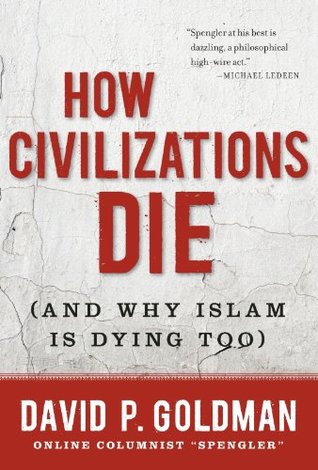From the advent of Christianity to the seventeenth-century Enlightenment, the West saw politics through the lens of faith. St. Augustine’s fifth-century treatise The City of God looked through the state to the underlying civil society, and understood that civil society as a congregation—a body bound together by common loves, as opposed to Cicero’s state founded only on common interests. (In the concluding chapter, we will consider Augustine’s view as a lodestar for an American foreign policy that realistically addresses the threats created by the imminent demographic collapse of nations.) We
From the advent of Christianity to the seventeenth-century Enlightenment, the West saw politics through the lens of faith. St. Augustine’s fifth-century treatise The City of God looked through the state to the underlying civil society, and understood that civil society as a congregation—a body bound together by common loves, as opposed to Cicero’s state founded only on common interests. (In the concluding chapter, we will consider Augustine’s view as a lodestar for an American foreign policy that realistically addresses the threats created by the imminent demographic collapse of nations.) We might call Augustine’s view “theopolitics.” A millennium later, Niccolo Machiavelli and Thomas Hobbes changed the subject, to the individual’s desire for power, wealth, and personal survival. Hobbes, the seventeenth-century grandfather of modern political science, introduced a radically truncated anthropology, centered on the individual’s struggle for survival. The state, he argued, was a compact among individuals whose survival prospects were poor in a “state of nature”; thus they ceded their individual rights to a sovereign in return for protection. A century later Montesquieu added differences in climate, terrain, and resources to the mix. The modern view of atomized man motivated only by the pursuit of material advantage is loosely known as “geopolitics.” What prompted this revolution in political thinking that has left modern political theory without the tools to understand the ca...
...more
This highlight has been truncated due to consecutive passage length restrictions.
causes and implications of the current demographic collapse? Undoubtedly, the terrible religious wars of the sixteenth and seventeenth centuries poisoned the idea of faith-based politics. Europe fought dynastic and political wars under the false flag of religion until the Thirty Years’ War of 1618-1648 destroyed almost half the population of Central Europe. The Peace of Westphalia that ended this fearful war forever buried the political model that Christendom had advanced since Augustine: a universal Christian empire that would keep the peace and limit the arbitrary power of kings.


